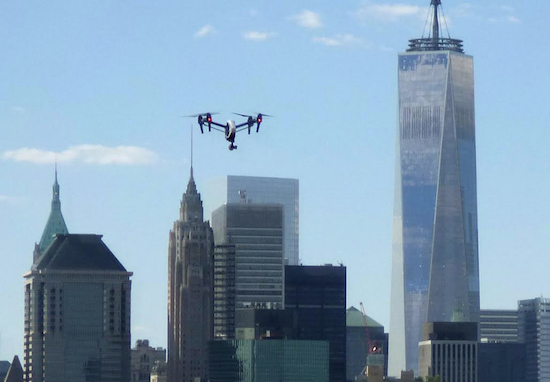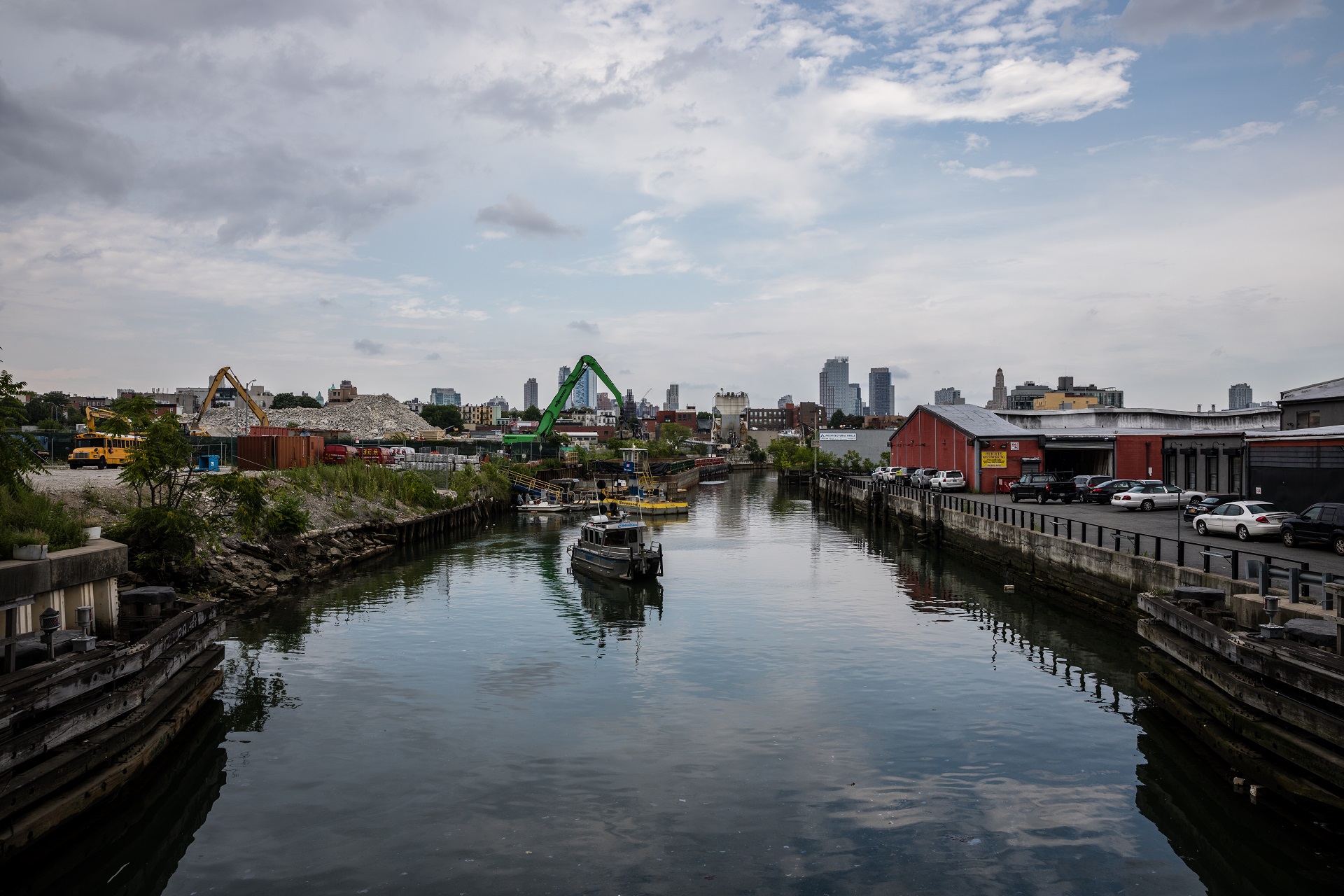NYC’s first drone retailer opening in Gowanus; prompts forum on ethics of drone use
Will first NYC drone store mean new retail, new regulations?

The Brooklyn Eagle captures a photo of a drone that was caught peering into a Brooklyn Heights high-rise this past August. Eagle photo by Mary Frost
Breathtaking, never-before-seen aerial views of the city are normally only afforded to passengers on planes and those fortunate enough to live or work in skyscrapers.
Roger Kapsalis, however, is in the process of making those spectacular scenes attainable for Brooklynites everywhere. Next month, the 44-year-old Bay Ridge resident is opening Brooklyn Drones NYC, New York City’s first exclusive drone retailer, in the borough.
“I’ve been in finance for the last 24 years, and I’ve finally found something that I can enjoy doing in life,” Kapsalis told the Brooklyn Eagle. “It’s a passion. It’s a hobby that I think I can monetize and there’s a need for a drone-specific store.
